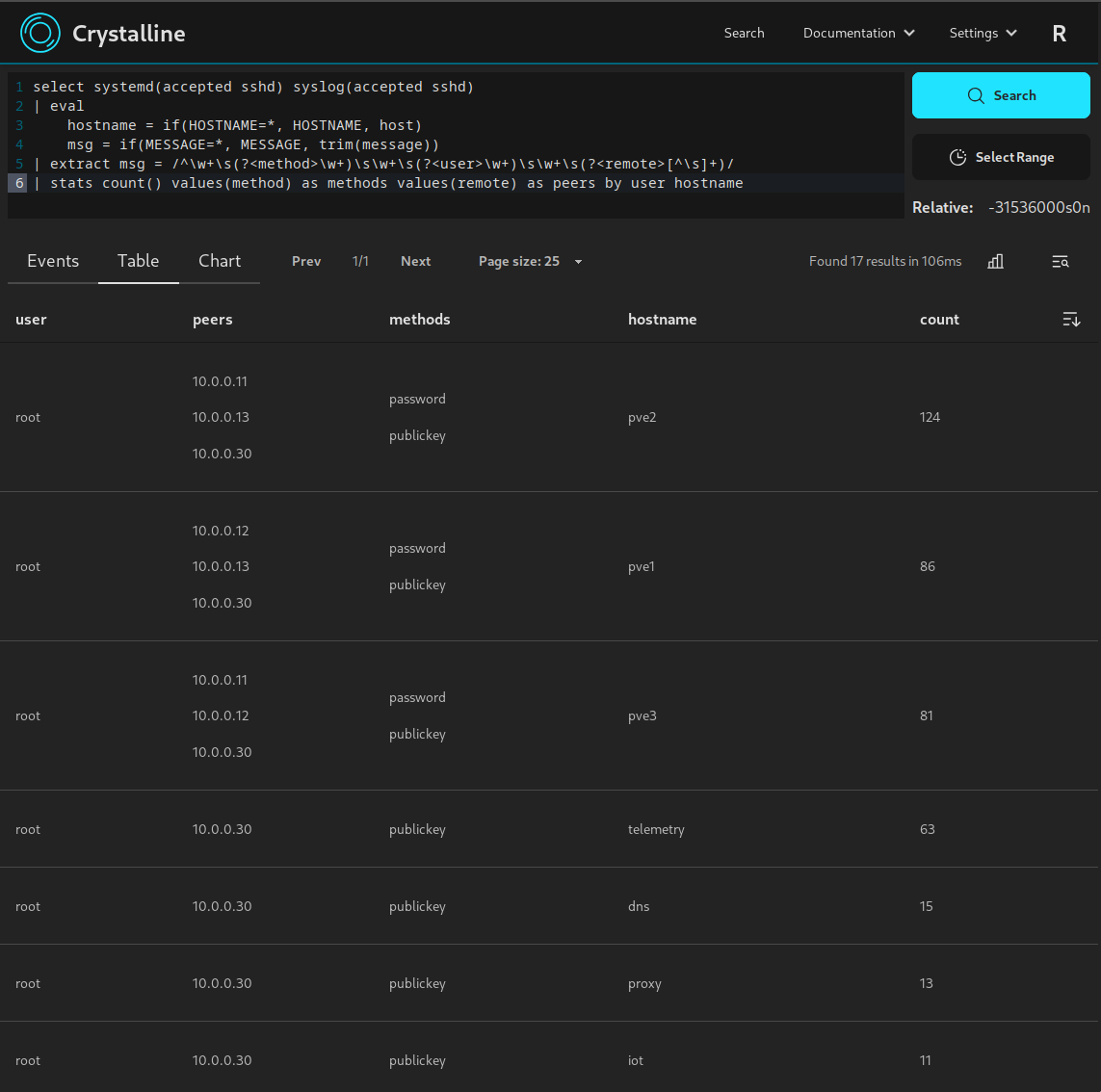Hi everyone, I've been building my own log search server because I wasn't satisfied with any of the alternatives out there and wanted a project to learn rust with. It still needs a ton of work but wanted to share what I've built so far.
The repo is up here:
https://codeberg.org/Kryesh/crystalline
and i've started putting together some documentation here:
https://kryesh.codeberg.page/crystalline/
There's a lot of features I plan to add to it but I'm curious to hear what people think and if there's anything you'd like to see out of a project like this.
Some examples from my lab environment:
events view searching for SSH logins from systemd journals and syslog events:

counting raw event size for all indices:

performance is looking pretty decent so far, and it can be configured to not be too much of a resource hog depending on use case, some numbers from my test install:
- raw events ingested: ~52 million
- raw event size: ~40GB
- on disk size: ~5.8GB
Ram usage:
- not running searches ingesting 600MB-1GB per day it uses about 500MB of ram
- running the ssh search examples above brings it to about 600MB of ram while the search is running
- running last example search getting the size of all events (requires decompressing the entire event store) peaked at about 3.5GB of ram usage





What are the disks and how full is the pool?